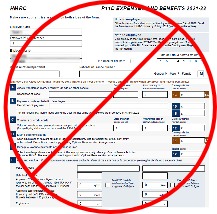Introduction
The user’s question pertains to the transition of certain employee benefits, which are currently reported on forms P11D, to being processed through payroll. This involves understanding the timeline and regulatory changes under UK law regarding the reporting and taxation of benefits in kind.
Legal Framework and Timeline
- Current Reporting of Benefits on P11Ds
Until the tax year 2025/26, employers are required to report non-payrolled benefits on forms P11D. These forms enable HMRC to adjust the employee’s PAYE code to collect additional tax due on benefits and provide information for employees to complete their self-assessment returns where necessary. Employers must also submit a declaration (P11D(b)) to account for Class 1A NICs on these benefits (“Until 2026/27, the report required for non-payrolled benefits is a form P11D which: enables HMRC to adjust the employee’s PAYE code to collect the additional tax due on any benefits; and provides information for the employee to complete their self-assessment return where necessary.” ) 1.
- Mandatory Payrolling of Benefits
From April 2026 (tax year 2026/27), the payrolling of most benefits will become mandatory. This means that employers will be required to process benefits through payroll in real time, collecting tax and Class 1A NICs as part of the PAYE system. The only exceptions to this mandatory payrolling are employer-provided living accommodation and beneficial loans, which will remain subject to the existing P11D regime (“From 2026/27, payrolling of all benefits except employer-provided loans and accommodation will become mandatory.” ) 2; (“Mandatory payrolling of benefits will be required from April 2026 i.e. collecting tax and Class 1A NIC on benefits in real time.” ) 1.
- Voluntary Payrolling Before 2026
Employers currently have the option to voluntarily payroll certain benefits, excluding living accommodation and beneficial loans. This system allows employers to process benefits through payroll, avoiding the need to report them on P11Ds. However, this voluntary system will transition to mandatory payrolling in April 2026 (“An employer can voluntarily process certain benefits via the payroll, excluding living accommodation and beneficial loans. From 2026/27, payrolling of benefits will become mandatory.” ) 3.
- Implications of the Transition
The transition to mandatory payrolling will have significant implications for employers and employees. In the tax year 2026/27, there will be a risk of double taxation as the PAYE code will still reflect benefits received in 2025/26. Employers are advised to communicate these changes clearly to their workforce and review their payroll systems to ensure compliance (“Mandatory payrolling of most benefits will be required from April 2026, i.e. collecting tax and Class 1A NIC on benefits in real time. This will have adverse cash flow consequences for both the employer and employees, particularly in 2026/27 when double taxation occurs as the tax code will still reflect benefits received in 2025/26. Clear communication to the affected workforce will be vital.” ) 4; (“Employers should consider now whether a review of the benefits offered to employees is appropriate and determine if their current payroll software will cope.” ) 1
Conclusion
The mandatory payrolling of most benefits currently reported on P11Ds will commence from April 2026 (tax year 2026/27). Employers should prepare for this transition by reviewing their payroll systems, ensuring compatibility with HMRC’s requirements, and communicating the changes to employees. The only exceptions to this mandatory payrolling are employer-provided living accommodation and beneficial loans, which will continue to be reported on P11Ds.

